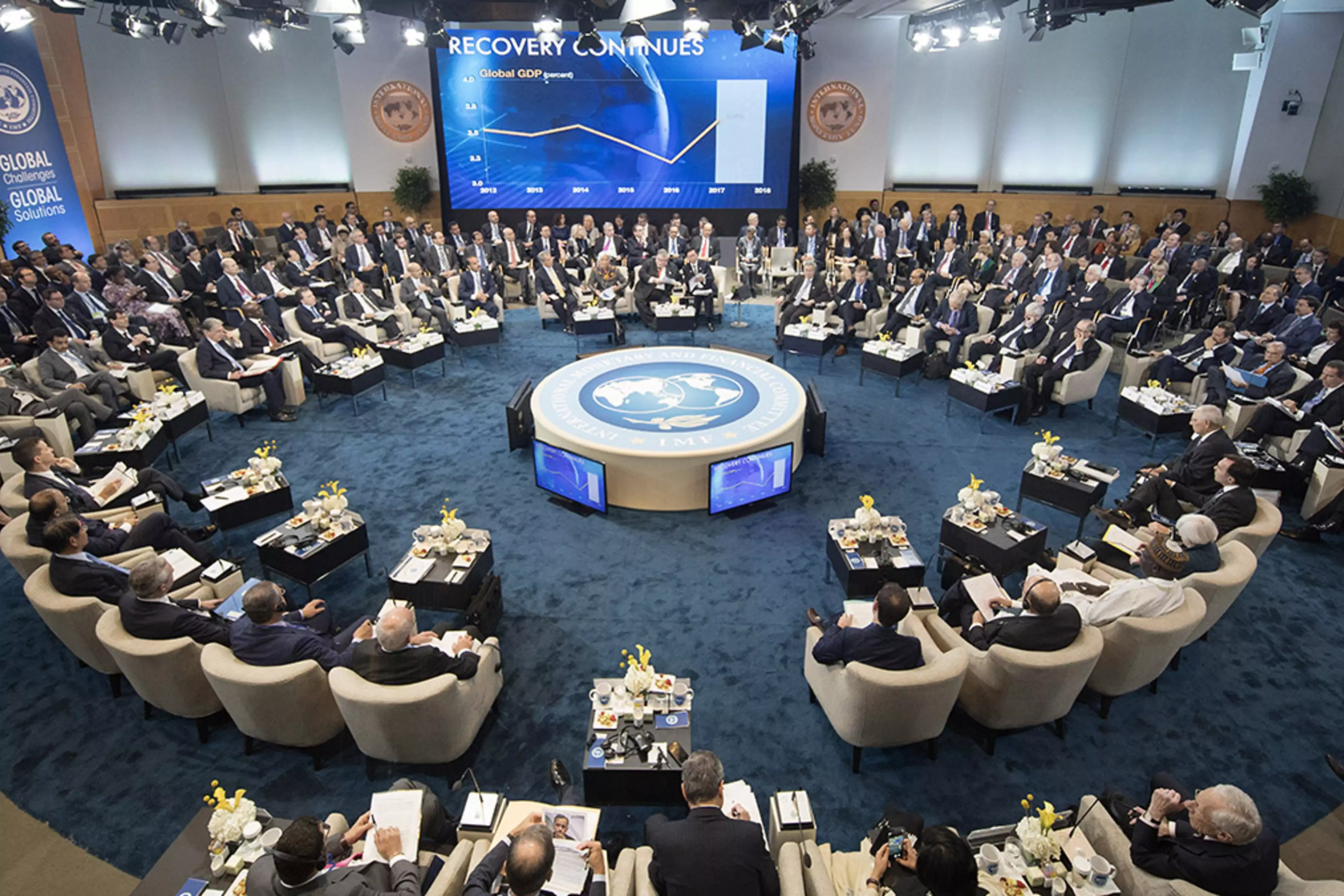IMF stands for International Monetary Fund. It is a global organization that aims to promote international monetary cooperation, facilitate international trade, and promote economic growth and high employment. Its main office is in Washington, D.C., where it was founded in 1944.

The IMF provides financial assistance and advice to its member countries and works to ensure stability in the international monetary system.
The International Monetary Fund (IMF) predicted that growth would slow slightly in India’s economy in the upcoming fiscal year, dropping from 6.8 percent during the current fiscal year ending March 31 to 6.1 percent.
The Indian economy is the sixth-largest in the world by nominal GDP and the third-largest by purchasing power parity.
It is considered a developing economy with a mix of agriculture, manufacturing, and service sectors. The service sector, including information technology and finance, is the largest contributor to the country’s GDP.
India is one of the fastest-growing major economies in the world and has seen substantial growth in recent years, although there have also been challenges such as high inflation, a large fiscal deficit, and a complex regulatory environment.

The Indian government has implemented various reforms aimed at boosting economic growth and attracting foreign investment.
The January update to the IMF’s World Economic Outlook was released on Tuesday. According to this forecast, global growth is expected to decline from an estimated 3.4 percent in 2022 to 2.9 percent in 2023 before increasing to 3.1 percent in 2024.
Since our October Outlook, our actual growth projections for India have remained the same.
For the current fiscal year, which ends in March, we anticipate growth of 6.8%, and for the following fiscal year, 2023, we anticipate a slight slowdown to 6.1%.
And the main causes of that are outside factors. Reporters were told this by IMF Chief Economist and Director of Research Pierre-Olivier Gourinchas.
According to the IMF’s World Economic Outlook update, “Growth in India is having a significant impact and is set to decline from a good 6.8% in 2022 to 6.1 percent in 2023 before the economy picks up to a great 6.8% in 2024, with resilient domestic demand despite external headwinds and with the worst impact.”
After a more severe than anticipated slowdown in 2022 to 4.3 percent due to China’s economy, growth in emerging and developing Asia is predicted to increase to 5.3 percent and 5.2 percent, respectively, in 2023 and 2024.
For the first time in more than 40 years, China’s real GDP growth will slow in the fourth quarter of 2022, resulting in a 0.2 percentage point downgrade for 2022 growth to 3.0 percent.
According to projections, China’s growth will reach 5.2 percent in 2023 due to rapidly improving mobility, then decline to 4.5 percent in 2024 before stabilizing at less than 4 percent over the medium term due to waning business dynamism and sluggish structural reform progress.
I want to call everyone’s attention to the fact that emerging and developing market economies already seem to be expanding.
The region is anticipated to grow by 3.9 percent and 4 percent in 2022 and 2023, respectively.
The fact that China and India will collectively account for about 50% of global growth in 2023 is another important point. “This is as important as any other contribution for everyone.”
We had a positive opinion of India in our forecast from October, and that optimistic outlook has largely not changed “Gourinchas answered the question.

In a blog post, he claimed that India continues to be a shining example. It will account for half of the global growth this year, along with China, compared to just a tenth for the US and the euro area combined, he added.
The slowdown will be more pronounced for advanced economies, with growth rates falling from 2.7 percent last year to 1.2 percent and 1.4 percent this year and next. According to Gourinchas, nine out of ten advanced economies will likely slow down.

As the effects of interest rate increases from the Federal Reserve spread throughout the economy, US growth will slow to 1.4 percent in 2023. Despite indications of resilience to the energy crisis, a mild winter, and generous fiscal support, he said, conditions in the euro area are more complicated.
We anticipate growth to bottom out at 0.7 percent this year due to the European Central Bank’s tightening of monetary policy and a negative terms-of-trade shock brought on by the rise in the cost of its imported energy.
Also, read these articles.

